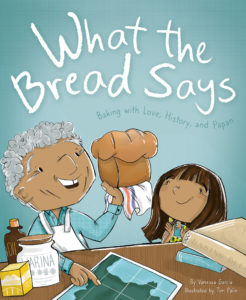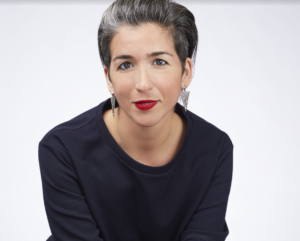“How to Honor Your Roots”
I come from a family whose roots are thick and wild. A family which was uprooted repeatedly; displaced over and over again. But the root itself – to homeland and history — never died. Instead, it flourished with mysteries and new blooms alike.
Somehow, my grandparents managed to salvage and plant our family’s displaced Cuban roots on American soil. My mother nourished them, and they grew. It’s my job, as the daughter of refugees, to water them, watch them grow deeper and higher still. Writing is the way I till and water.
A little bit of background.
My grandfather was born in Spain and escaped three tyrannies. He escaped Franco during the Spanish Civil War, by crossing the Pyrenes Mountains on foot with his brother, Pedro. He was 13-years-old. Once in France, he and Pedro became foster kids. Then, WWII hit, and he and Pedro had to escape Hitler. They escaped on a ship with Jewish kids, fleeing for their life, the same ship Vladimir Nabokov would take just a month or so later.
The ship was headed to Ellis Island.
After stepping foot on Ellis Island, however, Pedro and Papan, which is what I call my grandfather, did not stay in the U.S. Papan and his brother told Ellis Island officials that they were from Cuba, because they were afraid to be sent back to war-torn Spain. So, instead, the brothers were shipped off to Cuba, where they built a new life. It was a spectacular life. Pedro and my grandfather made families, my grandfather married my Cuban grandmother; they had my mother and aunt. And then…Fidel Castro.
Fidel Castro came to power, and it was time to escape again, from yet another tyranny – this time to Miami. My grandfather fled with my mom, aunt, and grandmother, almost losing his life in the process. Pedro was not so lucky — he was caught and imprisoned, politically, for almost a decade. After Pedro was released from prison, he didn’t speak to anyone for about a year because of the torture he’d suffered under the Castro regime.
These are the kinds of stories so many people I know live with as part of who they are, and the legacies they carry; stories we cannot forget. This is why I write about my grandfather.
What the Bread Says is my first book-form homage to him. It’s a picture book that carries a lot, but is also simple at the same time. It’s the story of how, when I was a kid, my grandfather taught me to bake bread while telling me the family story.
I hope it inspires many other kids and families to collect their own family stories. I hope it inspires parents to tell oral histories and kids to ask questions. I hope it inspires families to record and archive these stories. These are the stories that make us up, not just as individuals, but as a collective. A forest.
History is within us. And sometimes it feels so big, we don’t know where to start. My advice? Grab your phone and place it next to your grandmother, mother, great grandfather. Whoever is around – the people that carried and watered the roots of your family until now. Because now it’s YOU! It’s your turn.
Press record and ask them to tell you the story of their life. Tell them to start from the beginning. Give them an example: “I was born in _____ on ______ day in the year _______….” And let them take it from there.
That’s what I did.
I let them take it, and my elders took me on a journey. I did this to both my grandparents. The first time, I went home and listened to the recordings. Then, I transcribed them. After this, questions arose. I went back. I asked these and other questions, asked them to fill in the blanks. They couldn’t remember all of it – my grandfather was 98 when he died, that’s almost a century of knowledge and experience. When he couldn’t remember, I asked those around him. I did research. Apart from all the bread-making sessions, which were unrecorded, of course, I began to record them when I was a teenager and later as an adult. I am still gathering their story, even beyond my grandfather’s death.
Our humanity is a puzzle – a map that’s partially uncharted, partially hidden, partially in sight. Our old people carry the key, and our young have the energy to use it. Together, we unlock the map and make the future.
What The Bread Says: Baking with Love, History, and Papan
Published October 1st, 2022 by Cardinal Rule Press
About the Book: Join Papan and Vanessa on a baking adventure from the bumpy Pyrenees Mountains into fancy Paris and to the tropical island of Cuba, kneading and dancing, singing, and telling stories all the way.
In every piece of bread, there’s a story, here is ours. What’s yours? Put on your apron and get ready to bake some delicious bread while you travel from Spain to France to Cuba and back again — all before the kitchen timer dings. Let Papan be your guide!
Book Trailer:
About the Author: Vanessa Garcia is a multidisciplinary writer and creator working as a screenwriter, novelist, playwright, and journalist. She has written for Sesame Street, Caillou, and is a consultant on Dora the Explorer. Her debut novel, White Light, was published in 2015, to critical acclaim. Named one of the Best Books of 2015 by NPR, it also won an International Latino Book Award. She holds a PhD from the University of California Irvine in English (with a focus in Creative Nonfiction), an MFA from the University of Miami (in fiction), and a BA from Barnard College, Columbia University (English and Art History). Her autobiographical radio play, Ich Bin Ein Berliner about the fall of the Berlin Wall and her relationship to Cuba, premiered in April of 2021. You can learn more at http://www.vanessagarcia.org/.
Thank you, Vanessa, for sharing your inspiration and history!



1 thought on “Author Guest Post: “How to Honor Your Roots” by Vanessa Garcia, Author of What The Bread Says: Baking with Love, History, and Papan”